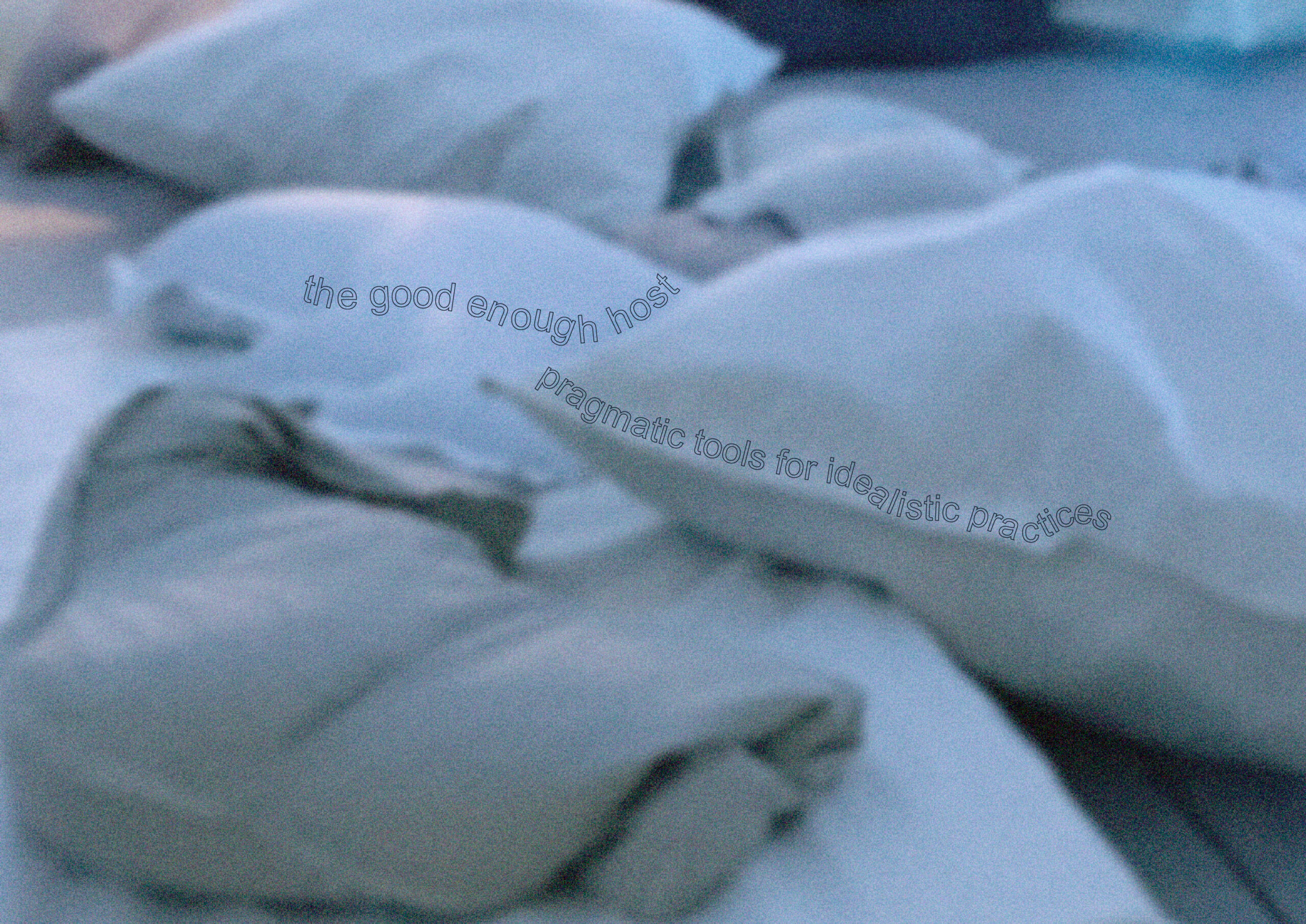The good enough host - pragmatic tools for idealistic practices
Hosting, facilitating and organizing in collective structures can come with a lot of baggage. To work within self-organized frameworks, outside established institutions, without a static (economic) infrastructure, might offer the freedom to do things differently, but can also inadvertently (re)generate precarious conditions in which participants are overworked, take up several roles simultaneously, and are left without the capacity to fully embody their ethics.
As a collective, we repeatedly find ourselves navigating questions such as: What is the ethical dimension of hosting in collective knowledge production? What are the power relations we need to consider as hosts, how can they be reflected or even deconstructed/unlearned? How to navigate the responsibilities and affective investments of the host within the limitations of precarious working conditions?
With our research, we aim to dive deeper into characteristics, contradictions and possibilities of hosting in the specific frame of (often precarious) self-organized structures in order to develop strategies and tools to navigate responsible and sustainable hosting practices. While current discourses around rethinking hospitality in art institutions, that inform concepts of the museum, the curator as good hosts, reveal similarities to the relational template of parental care (Fraser 2016), we want to propose the good enough host (Winnicott 1956) as a potential strategy for non-institutional facilitation. Rather than situating our idea of hosting in the good/bad binary, the good enough offers us a way to engage with ambivalences and difficulties inherent to the role of the host. Based on this proposition our first research stage aims to create a common pool of knowledge and references through conversations, exchange of experiences and close readings, in which we engage with texts regarding hosting and collective organizing (e.g. A. Fraser, A. Martinis Roe, D.W. Winnicott, Jo Freeman). For our second research stage, we would like to invite guests working in fields of accessibility, cultural labor unionizing and collective research facilitation to deepen our research on practical steps and strategies. Based on their input, we want to collectively develop tools, such as protocols or guides for navigating capabilities, responsibilities and boundaries of the host. A possible outcome for those tools is the development of a publication (available in print and online), to be shared and used with other facilitators, organizers and hosts. As an optional way to bring those tools into action, we imagine a speculative format, in which we ask what if (what would be an ideal scenario for hosting and facilitating and for whom? How would we host if the socio-economic, political structures surrounding us were different?).
